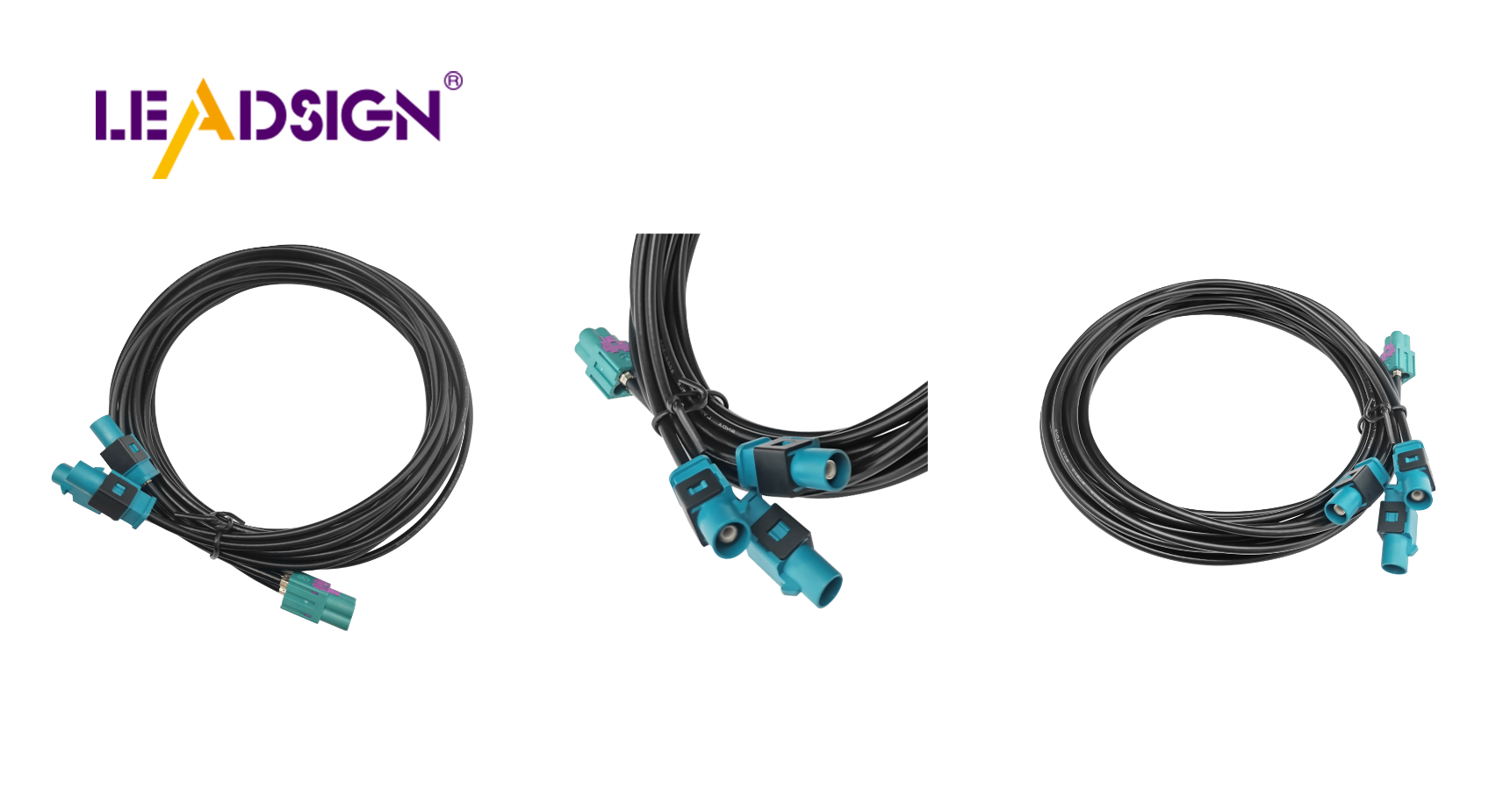Comprehensive Guide to Automotive Wiring Connector Types

Selecting the appropriate wire connectors automotive type is crucial for ensuring the safety and efficiency of your vehicle's electrical components. Consider power requirements and water resistance to prevent potential issues. There are various types of automotive wire connectors, each designed for a specific function. Choosing the incorrect type can lead to significant problems. By understanding these components, you can make informed decisions, enhancing the performance and longevity of your car's wiring system.
Important Things to Think About for Car Wire Connectors
When picking car wire connectors, think about key things. This helps your car's electrical parts work well and stay safe.
What is Rated Current?
Why Rated Current Matters
Rated current is the most power a connector can take. If you go over this, it might break or catch fire. Pick a connector that fits your car's power needs.
Finding the Right Rated Current
First, know how much power your car part needs. Then, choose a connector that can handle that power or more. This keeps everything working safely.
What is Rated Voltage?
What Rated Voltage Means
Rated voltage is the highest voltage a connector can take without breaking. Match the connector's voltage with your car's system to avoid problems.
Things That Change Voltage Rating
Many things affect voltage rating like materials and design. Also, think about where you'll use it. Wet or hot places can change how it works.
How Many Contacts?
Types of Connectors by Contacts
Connectors have different numbers of contacts like single-pin or multi-pin. Each type does different jobs like controlling engines or playing music.
Picking Contact Numbers
Think about what you need the connector for and how much data or power it moves. For big jobs like headlights, pin connectors are good. Make sure it fits your car’s needs for best results.
Environmental Conditions
When picking car wire connectors, think about the environment. The weather can change how long they last and work.
Impact of Temperature and Humidity
Heat and wetness affect car connectors a lot. Hot weather makes materials grow, causing loose parts or melting. Cold weather can make them break easily. Wet air brings water, leading to rust and shorts. Pick connectors that handle your car's temperature and wetness well.
Protection Against Dust and Water
Dust and water are big problems for car connectors. Dust gets inside, causing bad connections. Water leads to rust and shorts too. Choose connectors with seals to keep dust out and stay dry.
Termination Type
How a connector joins a wire is important. It changes how easy it is to use.
Overview of Termination Methods
There are different ways to connect wires in cars. Crimping squeezes the connector onto the wire tightly. Soldering melts metal to join them well. Insulation displacement pokes through the cover to touch the wire inside.
Choosing the Right Termination Type
Pick the right way based on what you need it for. Crimping is fast for many uses at once. Soldering gives strong power flow for special needs. Insulation displacement is quick without cutting wires first.
Materials
The stuff used in car connectors matters a lot too.
Common Materials Used in Connectors
Car connectors often use copper, brass, or aluminum. Copper lets electricity pass well and bends easily. Brass mixes copper with zinc for good power flow and stops rusting too much. Aluminum is light but needs care against rust.
Material Selection Based on Application
Choose materials based on what you need them for in your car parts. For high-power areas like engines, copper or brass works best because they carry power well. In places that get rusty like near engines, brass stays better longer.
Signal Integrity
Why Signal Integrity Matters
Signal integrity is key for car electrical systems. Choosing the right connectors helps signals move smoothly. This is vital in modern cars with systems like GPS and music players. Bad signal integrity can make these systems fail, hurting your car's performance.
How to Keep Signal Integrity
To keep signal integrity, think about a few things when picking connectors. First, make sure they match the cable type and fit your car's power needs. Good materials like gold or silver help signals stay strong. Also, think about where you'll use them. Moisture-proof connectors stop rust that harms signals over time.
Interchangeability
Why Interchangeable Connectors are Good
Interchangeable connectors make fixing cars easier. You can swap them quickly without much work. This makes it simple to upgrade or change car parts without lots of rewiring. They also cut down on waiting time by letting you replace broken parts fast.
Following Standards and Compatibility
When choosing interchangeable connectors, follow industry rules like USCAR-2 for safety and reliability. Make sure they work with your car’s system, including moisture resistance and cable type. By doing this, you ensure your connectors work well and keep your car’s electrical system safe.
Choosing the right car wire connectors is important. Think about power, voltage, and contact numbers. Weather like wetness and shaking can change how connectors work. Scientific research findings show that bad air and strong shaking cause rust and breaks. Knowing these helps you pick better for your car's wires. Pick connectors that fit your car and handle weather well. This keeps your car safe and working well.
See Also
An Extensive Overview of HSD Connectors
Navigating Ford Fakra Connector Essentials
Essential HSD Connector Fundamentals for Automotive Sector

